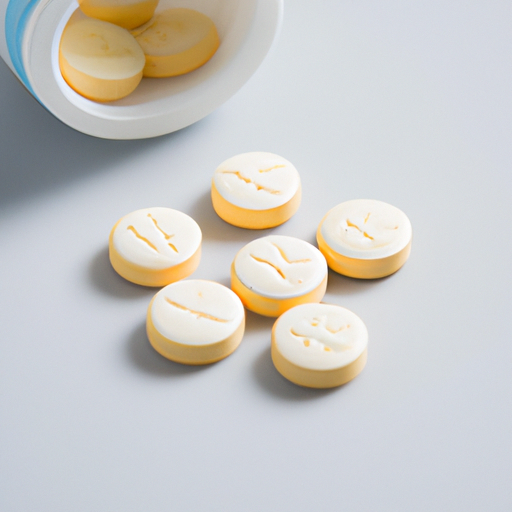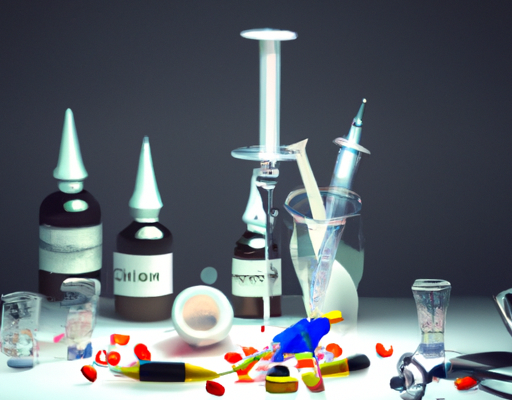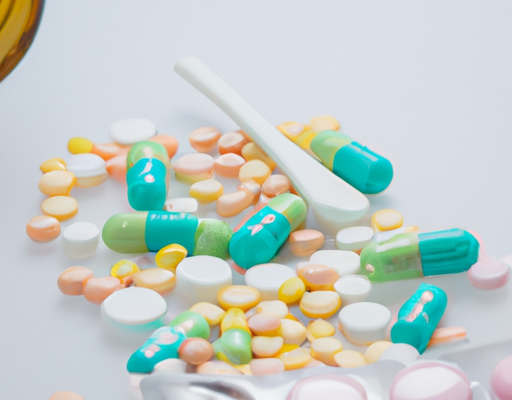1. Causes of Thick Pimples
Thick pimples are a type of acne that can be particularly stubborn and difficult to treat. Though they are generally more severe than a normal pimple, they can be treated with the same techniques used to treat other types of acne. What causes thick pimples to form? These bumps can be caused by several different factors including hormone imbalance, clogged pores, bacteria, stress, and certain medications. Hormone imbalances, especially during puberty and pregnancy, can stimulate the sebaceous glands to produce too much oil and thus cause thick pimples to form. Clogged pores, as a result of dead skin, excess sebum, and debris from makeup and other products, are also a common factor. Bacteria and inflammation can lead to further clogging and irritation of the pores, resulting in thick pimples. Stress can also increase the amount of oil produced, exacerbating an existing breakout. Finally, certain medications can disrupt the balance of hormones and skin cells, leading to thicker, deeper pimples.
2. Symptoms of Thick Pimples
Thick pimples can be painful and difficult to treat. Common symptoms of thick pimples include swelling, redness, tenderness, and pain. If left untreated, the pimple may become inflamed and swollen, making it difficult to remove. Thick pimples can also be accompanied by other skin issues such as blackheads, whiteheads, and postules. In some cases, thick pimples may rupture, causing a bacterial infection or scarring. Treating thick pimples as soon as possible is key in preventing further complications and keeping skin healthy.
3. Treatments and Remedies
Thick pimples can be a difficult problem to deal with. Fortunately, there are treatments and remedies available to help reduce the appearance of thick pimples. Here are some of the most effective methods:
- Cleansing and exfoliating the skin with a gentle yet effective face wash.
- Using topical creams, gels, and lotions containing salicylic acid, benzoyl peroxide, or retinoids.
- Taking oral antibiotics, such as tetracycline or doxycycline.
- Using light therapy or laser therapy.
- Using natural remedies, such as tea tree oil or aloe vera.
Depending on the severity of your condition, your doctor may recommend one or more of these treatments. Regardless of the treatment chosen, be sure to use it regularly and as directed by your doctor. Doing so can help reduce the appearance of thick pimples and improve your skin’s health.
4. Prevention
Preventing thick pimples may not be easy, but there are steps you can take to reduce their chances of developing. Following these simple steps can help you avoid thick pimples and keep your skin looking healthy and clear.
- Cleanse your face twice daily with a mild cleanser.
- Exfoliate your skin on a regular basis to remove dead skin cells.
- Avoid touching your face with your hands.
- Avoid using irritating or harsh products on your skin.
- Avoid sharing towels, washcloths, and makeup.
- Wear sunscreen when outdoors to protect your skin from the sun’s damaging ultraviolet rays.
- Eat a balanced diet and drink plenty of water.
- Reduce stress levels with relaxation exercises like yoga or meditation.
- Visit a dermatologist if your skin doesn’t improve.
Following these tips may not guarantee thick pimples won’t develop, but they can go a long way in helping to improve your skin’s overall health and appearance.
5. When to See a Doctor
When dealing with thick pimples, it’s important to pay attention to your skin and understand when it’s time to see a doctor. If the pimple is particularly red and swollen, there may be an infection, and an antibiotic or other treatment may be necessary. If the pimple doesn’t go away, or if more and more pimples keep appearing, it may be a sign of an underlying condition such as an autoimmune disease or hormonal imbalance, and medical attention is needed in order to properly diagnose and treat it. Additionally, if you experience unusual or severe side effects such as sudden face swelling, rapid heartbeat, or chest pain, it is definitely time to see a doctor. Not all pimples are created equal, so it’s important to stay proactive and vigilant when it comes to your skin. If you have any concerns or questions, be sure to reach out to a qualified medical professional for assistance.





No Comments